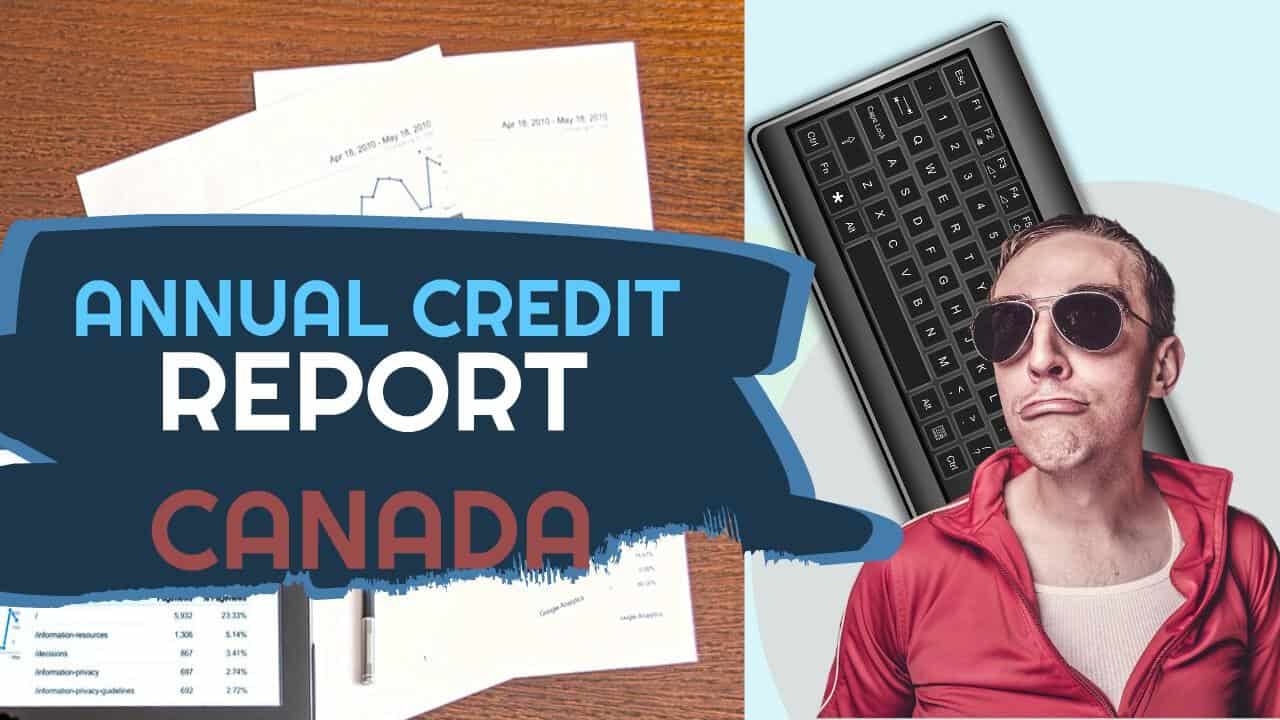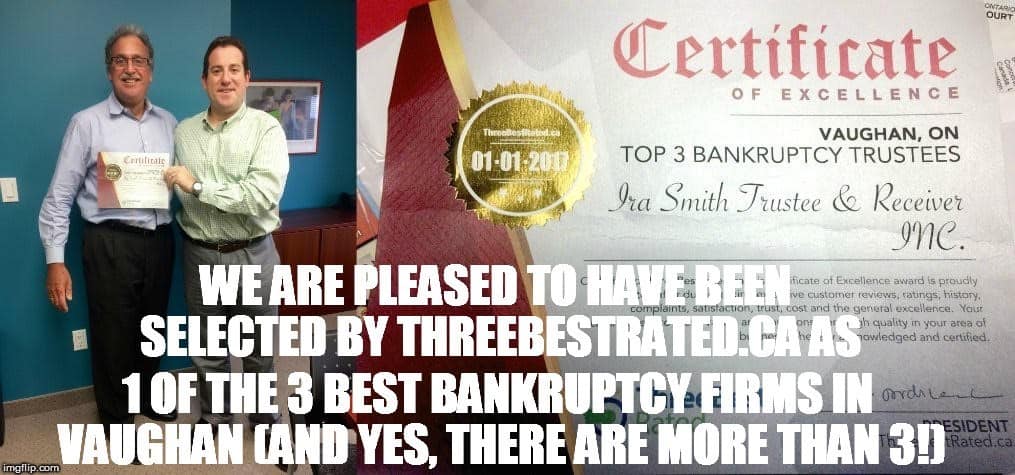[monkeytools msnip=”http://monkeyplayr.com/playr.php?u=5173&p=21641″]
What is a credit reporting body?
A credit reporting body is also known as a credit bureau or credit reporting agency. It collects, saves, makes use of and reveals personal credit scores about individual consumers. The bureau refines these details to report on the credit rating or creditworthiness of a person. Businesses considering extending credit to people subscribe to and make use of such a credit reporting body.
One thing the bureaus do is report a listing and condition of your debts. More on this below. People with financial problems who come to see me many times are confused as to how a credit reporting agency operates. Many times people are confused between the credit reporting agency’s reporting of debts where the creditor can no longer sue. The reason they can’t sue is because of the statute of limitations in Ontario (again, more on this below). Yet, the debt is still listed by the credit bureau.
I recently came across an Ontario court decision, that describes perfectly why debts can still be listed on your credit report, even though the creditor has run out of time to sue you.
What are the major credit reporting agencies in Canada?
In Canada, there are 2 such reporting companies for consumers: Equifax and TransUnion. For companies, one of the most prominent credit reporting company is Dun & Bradstreet Canada.
How do I get a free copy of my credit file?
You are able to get your complimentary credit report once every 12 months from each of the two nationwide rating companies. If you need a current report more often than that, you can pay TransUnion or Equifax to get it. You can get your credit report by phone, fax, online or in person. Each credit bureau provides instructions on how to do it.
There are also two online services that will provide you with your credit score and report for free. They are Borrowell and Credit Karma Canada.
The Court case
This court case was somewhat unique in that it was a small claims court case. The 10-page decision clearly shows that a statute of limitations will not erase the debt. The case is Harvey v Capital One Bank, 2019 CanLII 69716 (ON SCSM).
Mr. Harvey sought $25,000.00 against Capital One Bank for purportedly posting to the credit reporting body firms, defamatory details impacting his professional reputation. Mr. Harvey admits he owed money to Capital One however asserts the debt can no longer be pursued, as it is beyond the 2 year limitation period for enforcement according to the Ontario Limitations Act, 2002, S.O. 2002, c. 24, Sched. B. Capital One Bank confessed it reported the debt but was fully justified in doing so according to the Consumer Reporting Act, RSO 1990, c. C.33.
The agreed statement of facts
Mr. Harvey and Capital One Bank submitted an Agreed Statement of Facts:
- Mr. Harvey had two Capital One Bank accounts. The account concerned was opened up on or about March 5, 2009. The second account was opened on or around June 2018.
- Mr. Harvey was contacted by collection firms acting on behalf of Capital One from 2015 to 2018 in an attempt to collect the debt.
- Capital One provided disclosure regarding the terms of the account when Mr. Harvey was originally authorized. He received duplicates of the account statements created, which were accurate, consisting of the balance owing, repayments, interest and fees or charges. All rates of interest and various other fees were correctly applied.
- Mr. Harvey was advised many times that his failure to pay the outstanding balance would be reported to the credit reporting body companies and it can adversely affect his credit rating.
- Mr. Harvey paid $200.00 on the account in question on October 27, 2014. He failed to make the minimum payment due on December 4, 2014. He as well failed to make any type of subsequent repayment, other than for a $200.00 payment around August 20, 2018.
- When Capital One charged off Mr. Harvey’s very first account on June 2015, the balance owing was $841.78.
- All details about the Capital One debt in the credit reports generated by Mr. Harvey were accurate and true, with the exception of one amount of $1,449.00 for a different Capital One account which Mr. Harvey would not admit to. In his testimony, he deposed that he has no particular memory of the components of that account or any understanding of the accuracy of the information.
- Other non-Capital One credit accounts referenced in Mr. Harvey’s credit record included unfavourable credit history reports. Some of his other non-Capital One credit rating accounts had actually been charged off and sent to a debt collector.
- Mr. Harvey acquired a brand-new Canadian Tire Bank MasterCard around January 2019 with a $300.00 credit line, a brand-new FIDO cell phone account around September 2019, a brand-new credit line for a car loan of $22,465.00 around September 2019 and also a new Capital One MasterCard with a credit line of $300.00 around June 2018.
Capital One Bank’s evidence
Capital One’s evidence was straight forward. Credit cards revolve and are reported to the credit reporting body companies on a regular monthly basis. There is a standard conventional rating system used by all financial institutions when reporting to the reporting agencies:
| Rating score | Meaning |
| R1 | Indicates settlement on time or 1 to 30 days delinquent. |
| R2 | 31 to 60 days delinquent |
| R3 | 61 to 90 days overdue |
| R4 | 120 days overdue |
| R5 | 121 to 150 days overdue |
| R6 | Does not exist |
| R7 | Used only for credit counselling and bankruptcy |
| R8 | Repossessions |
| R9 | Account has been charged off |
Mr. Harvey’s Capital One debt was reported to the credit bureaus in conformity with the legislation. By April 9, 2015, the account, 5 months overdue, was completely limited, meaning it cannot be re-opened to make purchases. An R5 score was reported to the credit reporting body companies. By May 9, 2015, it was 6 months overdue. R5 was reported once again.
Once it is 180 days past due, the account is charged off and also an R9 rating is reported. When an account is charged off, it is still reported to the credit reporting agencies and remains an R9 score. After the account was charged off, Capital One engaged various collection companies as normal to attempt to collect the debt.
As the account remains overdue, Capital One continues to report to the credit bureaus up until reporting becomes statute-barred after seven years, based upon the date of the very first payment missed. That was December 4, 2014.
This 7-year reporting period is based on legislative provisions for credit report coverage. After seven years, Capital One makes one final entry in the record which erases the entire line from the credit bureau history. The credit reporting body companies have a similar procedure so they will remove this information also.
The Court’s analysis
The Court’s analysis was simple. It rejected all of the plaintiff’s submissions. The Court stated that the plaintiff never even produced any evidence in support of his claim that he has suffered damages through a loss of reputation.
The Court correctly analyzed the situation. The Deputy Judge found that by Mr. Harvey’s own admission the debt was never paid and stays outstanding. Capital One is not insisting on a claim to title; it is asserting its right to report an unpaid debt throughout the 7-year reporting period under the Ontario Consumer Reporting Act. The Ontario Limitations Act and Consumer Reporting Act serve completely different legislative purposes. They are also not in conflict.
The Court sided with Capital One’s position that the case relied upon by Mr. Harvey entails an argument concerning a right vs. a remedy. In Ontario, the limitation period acts to limit the remedy to sue but not the right to be repaid.
The Court’s decision
Capital One Bank lost the right to sue Mr. Harvey after the 2-year period expired. However, on a mutually exclusive basis, it had the right to report the outstanding amount owing for a 7-year period under different provincial legislation.
The Court further stated that the ramifications to companies extending credit to others might be harmed if such information was inaccessible, merely because the creditor did not commence legal proceedings for repayment of the debt prior to the 2-year limitation period. A person’s failure or refusal to pay their debts is vital details for other creditors, to whom that very same borrower has looked to for more credit.
The Court, therefore, found in favour of Capital One Bank and awarded costs against Mr. Harvey.
Summary
This case perfectly answers the question many people ask me when they come for their free consultation. The question is either: (1) Why is this debt still showing up on my credit report because it is too late for the credit card company to sue me?; or (2) Does the statute of limitations erase my debt? As seen in Mr. Harvey’s case, the limitation period and the reporting period are two different and separate issues.
Do you have way too much debt? Prior to you getting to the phase where you can’t make ends meet and your credit report looks awful, reach out to a licensed insolvency trustee (previously called a bankruptcy trustee). In fact, if you understand that you can’t pay your financial debts, contact us.
We understand the pain and stress excessive financial debt can trigger. We can aid you to get rid of that discomfort as well as address your financial problems offering prompt action and the ideal plan.
Call Ira Smith Trustee & Receiver Inc. today. Make an appointment with one of the Ira Smith Team for a free, no-obligation consultation and you can be on your way to enjoying a carefree retirement Starting Over, Starting Now. Give us a call today so that we can help you get back to stress and pain-free life, Starting Over, Starting Now.




